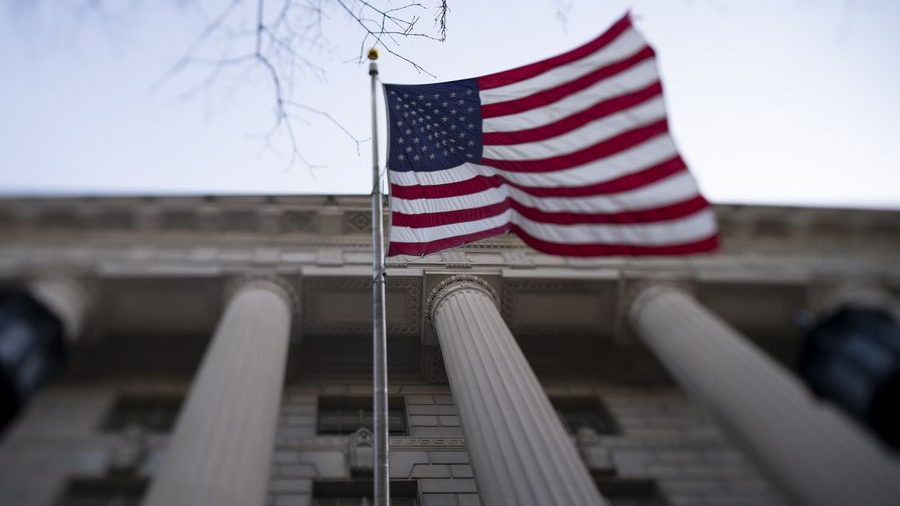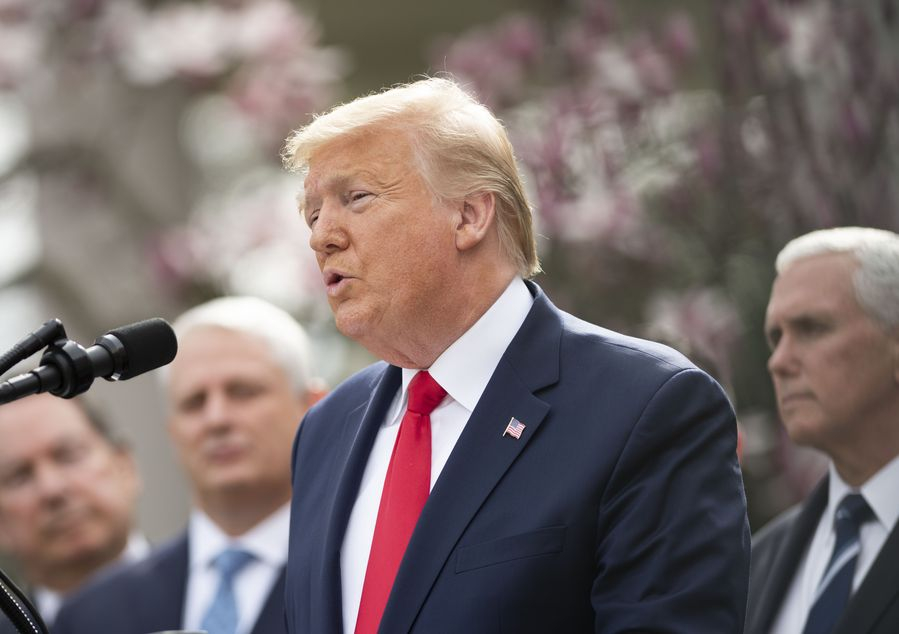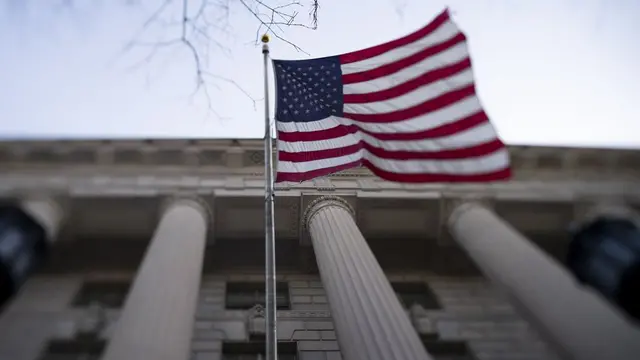
The White House Visitor Center in Washington, D.C., U.S., March 16, 2020. /Xinhua
Editor's note: Mike Cormack is a writer, editor and reviewer mostly focusing on China, where he lived from 2007 to 2014. He edited Agenda Beijing and is a regular book reviewer for the South China Morning Post. The article reflects the author's opinions, and not necessarily the views of CGTN.
One of the most remarkable things about Donald Trump's hostile takeover of the Republican party is watching its ideological transformation, or denial, or degradation. Previously it had a fairly consistent set of beliefs, though of course these adapted to the conditions of the day.
Former U.S. President Eisenhower might have warned of the power of the military-industrial complex, but he believed in strong defense and a global U.S. presence. Nixon might have been the first U.S. president to visit China and also signed the National Environmental Policy Act, but he also developed the Southern Strategy which appealed to white racial grievance.
The embrace of free-market fundamentalism and the fostering of the Evangelic coalition were nascent under Reagan, if less so under George H.W. Bush, who retained a strain of patrician paternalism.
Nonetheless, the general embrace of tax cuts, limited federal activity, "family values," and a strong presence overseas remained evident throughout the post-World War II period. These might contradict at times, but no-one should expect a philosophically coherent set of positions from any politician or even political party, which have to deal with the complexities and contradictions of reality. But what is remarkable is how many of these long-abiding touchstones have simply been torched under Donald Trump.
Trump is a man, of course, with zero interest in political ideology. It's doubtful if he has ever read a book in his life – even the ones with his name on them. Yet his own political slogans and positions did require changes to Republican orthodoxy.
His main idea was that globalization was often a process of ambiguous benefit to the average person in the developed world, especially workers and middle-managers. Sure, it might result in cheaper goods in the store and greater markets for businesses.
But for those who jobs could be exported, globalization was often a painful wrench. The processes of capitalism have been called "creative destruction" by the Austrian economist Joseph Schumpeter, but through their free-market fundamentalism, Republicans simply turned their eyes from the second word in that summary. So Trump has in office demanded that companies return manufacturing jobs to the U.S., and started a trade war with China.
Similarly, "America First" signaled an intent to keep the U.S. out of expensive external roles and commitments. This was popular with many after the disastrous Iraq war, and indeed built upon the isolationism espoused by Congressman Ron Paul in previous presidential campaigns. (The fervor of Paul's supporters also seems to have anticipated the reaction to Trump).
This has been perhaps the greatest change from previous Republican presidents – even George W Bush, whose neoconservative rhetoric emphasized American exceptionalism, until the killing fields of Iraq told otherwise.
Elsewhere much of Trump's agenda was simple partisan opposition to his predecessor. There really is no particular reason for Trump to have rolled back the nutritional requirements for school meals, or environmental standards, other than the fact that they were the legacy of President Obama.
Perhaps much of what Trump espoused could have been reasonably co-opted under the Republican umbrella. None were new ideas, and all had seeds in U.S. politics prior to Trump's ascent. But with no real ideology to sustain him and no intellectual ballast, Trump has never looked comfortable as president.

U.S. President Donald Trump addresses a news conference at the White House in Washington, D.C., U.S., March 13, 2020. /Xinhua
With no roots in the party and no interest in history, he had no notion what any presidency before him involved. He has no comprehension of success. Thus his only concern has been to strive to make himself look good, and his political opponents bad. Hence his constant absurd boosting of his own political reputation (on Monday he claimed to have been told he was the hardest working president ever), and the absurd school-yard nicknames he uses to taunt, from Crazy Nancy to Sleepy Joe.
With his contempt for his predecessors in politics, Trump has binned almost everything that Republicans held dear. They were the "pro-life" party, intent on minimizing if not eliminating abortion, on the premise of the sanctity of life.
But the party's response to the coronavirus has shown little feeling for American lives: Trump's posture of wanting to lift the lockdown but being stopped by officious state officials encouraged many to gather and protest the quarantines – at risk of their lives.
Republicans were also the party of "family values", which meant a sort of suburban decorum, a belief in church, virtue and certainty. But Trump is no moral exemplar. Quite apart from the multiple suggestions of sexual assault, he is on record as having multiple affairs, and his lawyer has been shown to have paid off a pornographic performer, Stormy Daniels. Republicans once donned the role of moral virtue when Bill Clinton was had an affair while president. That claim now looks absurd.
Were the Republicans a party of low taxes? Trump's tariffs are taxes paid by U.S. consumers. Were Republicans the party of law and order? Trump incites violence at his rallies, and lauds fascist marchers as "good people." Did the party believe in strength abroad? Trump has actively sought the approval of Kim Jong Un and Vladimir Putin. Did the GOP believe in NATO and the Western alliance? Trump hinted he would pull the U.S. out from NATO and hectored other leaders.
And so it goes. What therefore we have left of the Republican party is a nihilistic power cult, respecting nothing but Trump's authoritarianism. His narcissism and sociopathy mean every senator or representative of independent mind has stepped down (the turnover has been remarkable: around 100 out of 535 moved on following the 2016 midterms). All others keep their heads down and hope they can pass tax cuts to elicit corporate donations to let them stay in power.
The party Trump took over is thus like a business taken over by venture capitalists or Mafioso, bled dry and then torched. But perhaps you should expect nothing more from someone who businesses have filed for six bankruptcies.
(If you want to contribute and have specific expertise, please contact us at [email protected].)
 简体中文
简体中文












